The Long Read: Music, Heritage and Mental Health – in conversation with Zakia Sewell
It was an absolute delight to chat with London-based DJ, radio producer and NTS Radio host, Zakia Sewell, on a sunny morning in lockdown. We navigated a range of topics from the healing power of music to heritage and mental health which feature prominently and poignantly throughout her work. The conversation absorbed me into a transcendental state, similar to when I listen to her weekly NTS radio show Questing, described as “spiritual jazz, psychedelic soul and other celestial grooves from across the planet”.
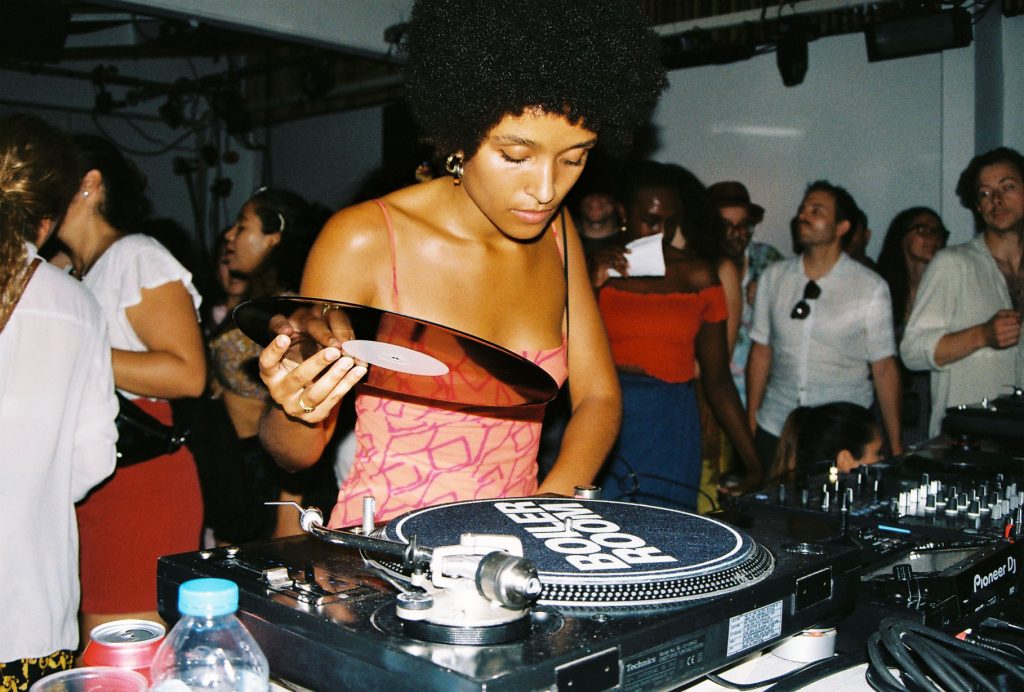
Credit: Stephen Akinyemi
“I think the idea that we can all connect to each other through music is a really magical thing, my aim is to make people feel” begins Zakia as we trace her journey into music. “My parents’ musical tastes, definitely shaped mine. My dad is very much into his jazz – I think the spiritual music comes from him – then my mum loves house music. It almost reflects the two aspects of what I do, the party DJ stuff and then the more meditative music I play on my show”. A deep passion and innate desire to share music and forgotten histories has undoubtedly led Zakia to where she is now. Though, she fondly reminisces and modestly states it was merely through “a series of serendipitous events” and “happy accidents”: “I partied a lot and met people who loved music, I was very lucky that through those connections, I got opportunities such as working at Honest Jons Records and NTS”.
NTS radio occupies a space that has revolutionised radio and lured music aficionados back to a medium that has been in decline, due to the rise of streaming platforms such as Spotify. The station provides a treasure trove of experimental, diverse global music and is brimming with DIY spirit. From Japanese psychedelia and New wave to Bessie Jones and the Georgia Sea Island Singers, it showcases past and present but also nurtures future underground music scenes. “I feel really proud and grateful to be part of the NTS family, not only because of their incredible, varied and daring music output, but also the people, who are at the nucleus of NTS, are honest lovely people, and that is transmitted through each and every show”.
For regular listeners, QUESTING W/ZAKIA is sacrosanct to the ephemeral beauty of Saturday mornings. Zakia commenced her NTS passage as a Production Intern and never dreamed of having her own show, a “happy accident”, which started with an 8am Wednesday slot, and has bloomed into a weekly Saturday show. “They’ve really supported me and allowed me to find myself and do my own thing, I can’t imagine I would get away with what I get away with on NTS anywhere else… like the rambling”. The personal nature of Questing, the shout-outs, the tracks played to “thrash around your bedroom” (a very welcomed feature during lockdown), immerses listeners week on week, especially the impromptu moments, which make the show even more intimate.
“I feel like it’s an honest reflection of who I am and the music I love and hope this resonates with people, I’ve felt that even more strongly during this lockdown period, there is a connection between where I’m at, the music that’s healing me and what other people need”. Zakia explains to me that she compiles track-lists intuitively, following her own mood but also considers the collective atmosphere. This was evident in a recent show which addressed the shocking, racist killing of George Floyd. It was powerfully and thoughtfully curated and described as “a musical meditation on grief, rage, resilience and resistance”. The sounds and spirits of the civil rights and black power movements, free jazz and jubilant sounds of resistance were played, and it clearly illustrated Zakia’s intrinsic talent to positively channel a wide range of emotions, activism and meditative sounds through the airwaves.
Zakia’s personal heritage has provided her with a huge source of inspiration, from the ethereal field recordings played on her NTS show to radio documentaries, Big Drum on Little Carriacou, Speaking Sabar and My Amey and Me. Eloquently, she expounds “As a mixed- race person, there is a bit of soul searching to do about how two rivers meet in you, whether they blend and flow together or whether they come into conflict. Music is one way of trying to understand that and helps me to navigate and find the meeting places. When I listen to a field recording of my grandparents speaking in their rhythmical Welsh accent, and then I hear someone from the island that my mum’s parents are from, and hear the lovely Carriacou accent, there is something comforting in finding the parallels in the rhythms, sounds and music”. This is something that resonates with many of us, tracing and connecting with our heritage through art forms – be it music, literature or film. For me, music, especially that of my Indian heritage, has the ability to spiritually encompass my entire body in an otherworldly way, something that Zakia relates to: “music hits you, there is a body memory with music, and it cuts through the am I aren’t I, should I shouldn’t I, you just feel it.”
With the recent surge in activism towards fighting racial injustice, sparked by the case of George Floyd and powerfully led by the Black Lives Matter movement across the globe, essential and long-pleaded-for conversations around structural racism and legacies of colonialism within the UK have been re-ignited. The Art of Remembering podcast, produced by Zakia last year for Tate, is an incredibly timely, informative and important listening experience. Led by artists, poets and activists, it explores how art can be used to address the erasure of important events that has led to a history of ‘misremembering’ and gives thoughtful background to the campaign to decolonise Bristol – the Countering Colston movement. “I hope, through the podcasts and documentaries that I make, that I can contribute a little to unearthing stories that are often unheard and overlooked in mainstream narratives. I’m very privileged to have access to platforms like the BBC and Tate and so try my best to use those platforms to centre the voices, experiences and perspectives of people of colour.”
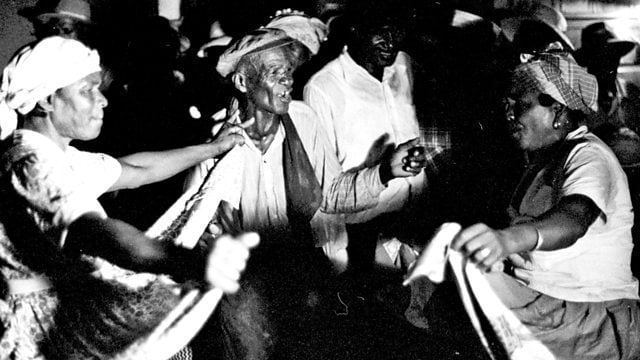
Credit: Alan Lomax Archive
Unpicking heritage further, I was keen to explore Zakia’s most personal Radio 4 documentary My Amey and Me – a curated conversation between Zakia and her mother Amey, who suffers from schizophrenia. Nuances are touched upon between mental health, Caribbean ancestry, motherhood and intergenerational trauma as the pair try to heal some of the wounds and rifts in their relationship caused by Amey’s illness. The discussions are personal to the two of them, entangled with stories from the past, invoking spirits of ancestors and experiences of slavery which find expression through the generations.
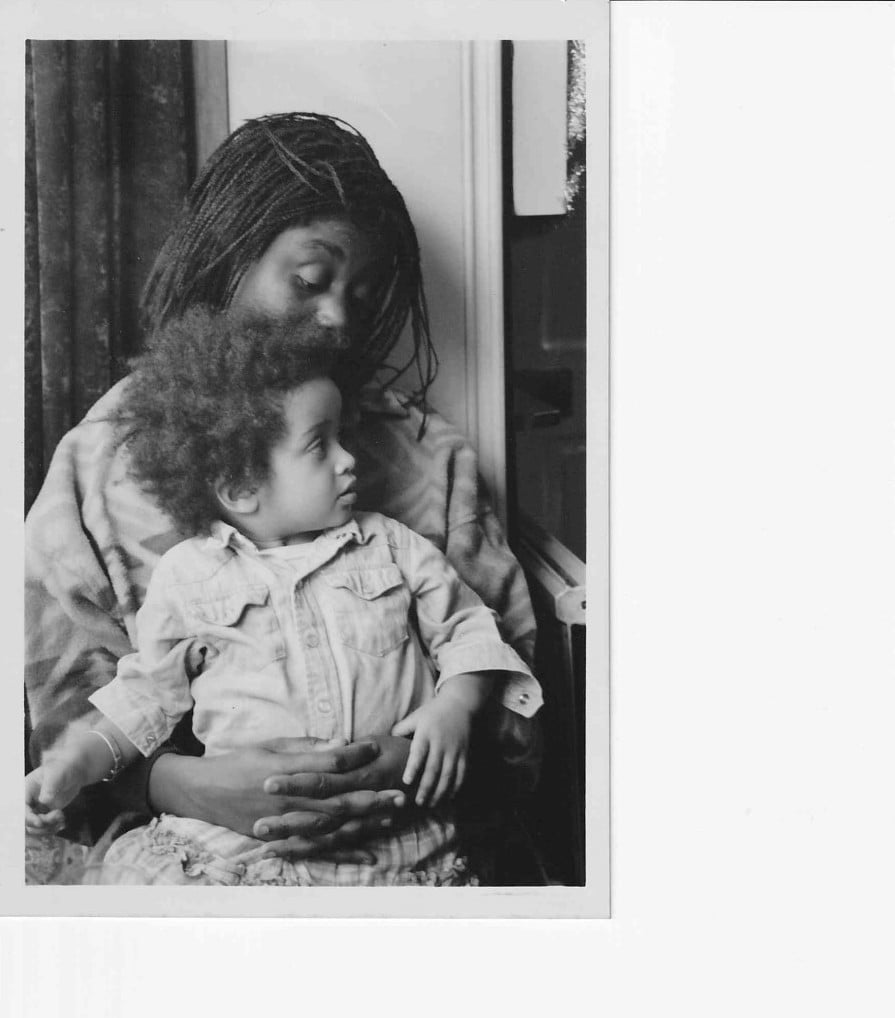
Credit: Zakia Sewell
The curated conversation ebbs and flows from intensity to laughter and is interwoven with spiritual music and poetry. It is full of heart-wrenching honesty where love is illustrated by mutual respect between mother and daughter, who seek to carefully understand and empathise with one another’s experiences, in particular, the lived experience of schizophrenia. One of the most effective parts of the documentary is the scattered wordplay/association between the pair, Zakia laughs, “that is the joy of making radio programmes – you just stick a recorder on, say a lot of shit and the thing that you thought was insignificant brings it all together, it was a really spontaneous idea and so much was revealed from it”.
Delicately, the documentary brings up some critically important talking points, leaving the listener informed but also encouraged to research further. Zakia tells me “it felt the best way to express our relationship and the difficulty was not in an overly factual way, just allowing people to make the connections themselves”. Implicitly, links are made between intergenerational trauma stemming from slavery, colonial legacies of oppression, and mental health within Black Caribbean communities. It raises much needed awareness around schizophrenia by deconstructing myths, approaching the different ways it can manifest and highlights the common nature of psychosis, which affects one in every hundred, a fact that I, like Zakia and Amey, was astounded by.
Exquisitely produced by Alan Hall, it is an all-consuming listening experience, soothing and healing whilst simultaneously edifying and powerful. I asked Zakia about what she hoped listeners would take from ‘My Amey and Me’ and its impact on her. “It felt a really important marker of how far my mum and I have come in terms of our relationship. We need to be willing to face the stuff we don’t want to face, and I’ve really experienced that in this metamorphosis of our relationship, so hopefully this documentary provides a bit of hope that things can change for the better”. She ends on a beautiful note “there seems to have been some kind of alchemical process, where our trauma has transformed into something positive that uplifts people, the fact we have done that together is quite a powerful thing and has made us stronger”.
We concluded profoundly, speculating on the uncertain future ahead and our mutual longing to groove side-by-side again. “I can’t quite see what’s on the horizon right now, but I really believe that if we are connected to ourselves, and if we’re looking within, inspiration will flow through and ideas will come, we will find the people and places we need, so I just have faith that the answers will arise. It is probably moving into helping people a bit more, I think that is what is needed right now”. In true Zakia style, positive and full of hope, she continues, “Post-COVID, people are going to feel the need to be together, moving our bodies to music, even more strongly. I have no doubt we will find a way, even if everyone has to dance in a bubble, there is such a need for it, people will get creative. Sometimes the value and deeper meaning of club culture can get lost when there’s a party every night, so what we’ve been experiencing might connect people more to the music, and that’s not a bad thing”.
Until we can dance together again, here is a track that is lifting Zakia’s spirits during lockdown and will hopefully lift yours too:
Filed under: Music
Tagged with: ancestry, black lives matter, caribbean, DJ, documentary, heriage, house, jazz, long read, mental health, mixed race, Mother, music, NTS radio, passion, radio, radio 4, radio producer, schizophrenia, Zakia Sewell
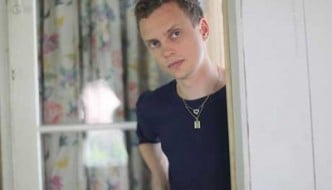
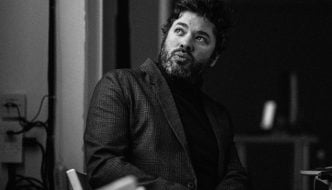
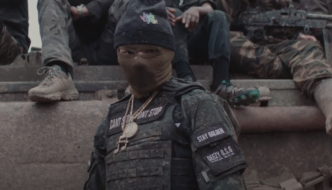
Comments